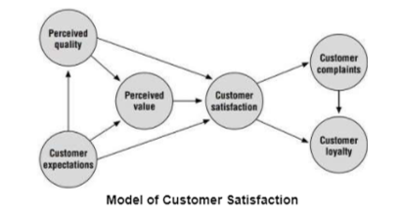Customer Satisfaction
Customer Satisfaction (CSAT) is a metric used to quantify the degree to which a customer is happy with a product, service, or experience. When it comes down to it, customer satisfaction is a reflection of how a customer feels about interacting with a business or a brand.
Explaining Customer Satisfaction[1]
Customer satisfaction, a term frequently used in marketing, is a measure of how products and services supplied by a company meet or surpass customer expectation. Customer satisfaction is defined as "the number of customers, or percentage of total customers, whose reported experience with a firm, its products, or its services exceeds specified satisfaction goals." In a survey of nearly 200 senior marketing managers, 71 percent responded that they found a customer satisfaction metric very useful in managing and monitoring their businesses. It is seen as a key performance indicator within business and is often part of a Balanced Scorecard. In a competitive marketplace where businesses compete for customers, customer satisfaction is seen as a key differentiator and increasingly has become a key element of business strategy. "Within organizations, customer satisfaction ratings can have powerful effects. They focus employees on the importance of fulfilling customers’ expectations. Furthermore, when these ratings dip, they warn of problems that can affect sales and profitability. . . . These metrics quantify an important dynamic. When a brand has loyal customers, it gains positive word-of-mouth marketing, which is both free and highly effective."
The Importance of Customer Satisfaction
See Also
- IT Strategy (Information Technology Strategy)
- IT Governance
- E-Business
- Enterprise Architecture
- IT Sourcing (Information Technology Sourcing)
- IT Operations (Information Technology Operations)
- Chief Information Officer (CIO)
- ↑ Definition - What Does Customer Satisfaction Mean? Definitions

